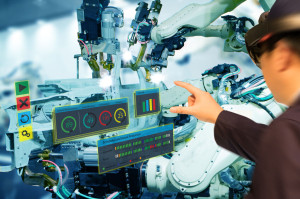 There is a reason why they call trucking and manufacturing “legacy” industries. Manufacturing, construction, medicine and law are other such examples. But there’s a problem with legacy industries. They need to adapt to a technological world and embrace the power of digital, augmented reality, virtual reality and so much more. It’s understandable, they’ve been doing something one way for a long time. Adopting new technologies can seem daunting. Fortunately, the future is now and technologies exist to create enhanced eLearning experiences for companies and trade schools.
There is a reason why they call trucking and manufacturing “legacy” industries. Manufacturing, construction, medicine and law are other such examples. But there’s a problem with legacy industries. They need to adapt to a technological world and embrace the power of digital, augmented reality, virtual reality and so much more. It’s understandable, they’ve been doing something one way for a long time. Adopting new technologies can seem daunting. Fortunately, the future is now and technologies exist to create enhanced eLearning experiences for companies and trade schools.
Take augmented reality as one example. Companies who work on training with diesel technicians use augmented reality to show them how to work on Class 8 heavy-duty big rigs. Trucking OEMs and heavy-duty vehicle manufacturers are shifting into the future by embracing the power of augmented reality (AR) and 3D virtual reality (VR solutions). Healthcare and medical device companies are developing ways to use AR and VR to train doctors and surgeons in managing specific surgical procedures. Advanced eLearning, 3D, and immersive learning experiences will transform the way companies interact with their employees and get the job done.
Trade schools also stand to benefit from new eLearning concepts and technologies. They can use 3D and VR technologies while combining resources. Trade schools can use existing technologies to accomplish other goals such as filling seats in classes and providing an enhanced learning environment for students. Imagine a technology that allows you and your students to access course material and content from a variety of industry leaders in one place and through one login. It’s hard enough working with existing industry stakeholders to provide an effective learning experience. Technological innovation generates momentum, saves time, cuts costs and raises efficiency.
Innovation in training and collaboration benefits trade schools in other ways. It historically has not been easy for trucking companies, suppliers, technology companies and trade schools to communicate effectively with each other. Tools now exist to allow dealers, customers, fleet managers, consultants and educators to connect and share information. Trade schools provide an enhanced learning environment for their students and then transfer workers ready for jobs in trucking, manufacturing, healthcare and other legacy industries. These are the benefit of innovations in eLearning.
There’s a reason why eLearning technologies have been growing in use. Companies understand that the future of learning lies in the digital world and are embracing it. From “legacy” companies to trade schools, forward-thinking organizations embrace the power and potential of eLearning technologies and methods.





